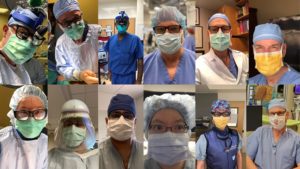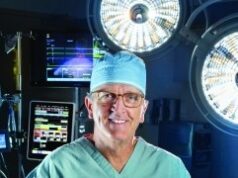
A survey published in The Annals of Thoracic Surgery find that despite being in an intensely demanding and competitive specialty, cardiothoracic surgeons report being extremely satisfied with their jobs—more so than ever before. Administered by The Society of Thoracic Surgeons (STS) approximately every five years since the early 1970s, the cardiothoracic surgery workforce survey helps establish a current, detailed profile of the specialty, including surgical practice trends and attitudes in the USA. For the most recent survey, 70 questions were shared with 3,834 members; 1,069 surgeons participated, resulting in a 27.9% response rate.
The survey results show that 83.1% of respondents say that they are either satisfied, very satisfied, or extremely satisfied with their current career, compared with 72.8% in 2014. In addition, half of practising surgeons would recommend that their children or grandchildren pursue a career in cardiothoracic surgery, while only 47.5% and 37.1% reported feeling that way in 2014 and 2009, respectively. Some surgeons are even postponing retirement because they have a “high level of career satisfaction.”
According to a press release, these still are trying times for cardiothoracic surgery. The educational debt accumulated by many surgeons is staggering, with 17.8% having $150,000 or more at the time they began active surgical practice. Though jobs are sometimes more difficult to find, the current survey showed that 59.2% of practices are looking to hire a new surgeon within the next two years, up from 52.3% in 2014.
Gender disparity also still exists in cardiothoracic surgery. Although more women make up the cardiothoracic workforce than previously reported, they are still under-represented in the specialty. The current survey reported that 8.4% of respondents were female, whereas that number was only 6.9% in 2014.
Perhaps one of the biggest challenges, though, is the risk of depression and burnout within the specialty. More than 55% of surgeons reported symptoms of burnout and/or depression related to their jobs over the past year, which is 10% to 20% higher than that observed in other specialties.
John S Ikonomidis (University of North Carolina, Chapel Hill, USA) comments: “Cardiothoracic surgery is busy and exhaustive at times. Patients are usually pretty sick, and their lives often depend on the outcome of the operation about to be performed. The surgeons, who are the ‘captains of the ship’ in the operating room, have developed the stamina and focus that enables them to get through long and stressful days and operations and still be able to come back for more.”
However, he adds that regardless of these pressures, “the practice of cardiothoracic surgery remains strong. It is a vibrant and multidimensional specialty that continues to be practised at a very high level by an outstanding group of caring, hard-working, and highly intelligent individuals”.












